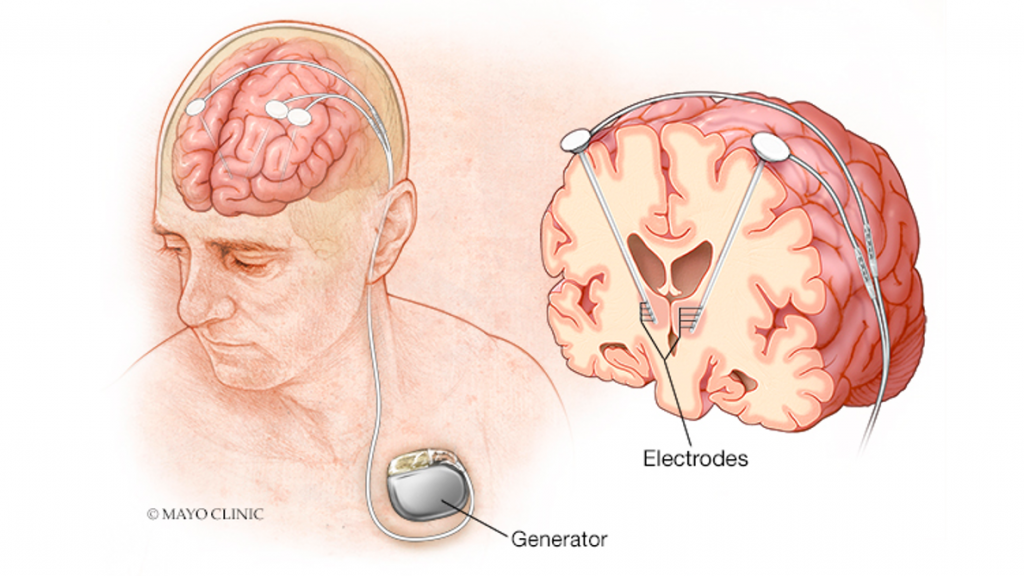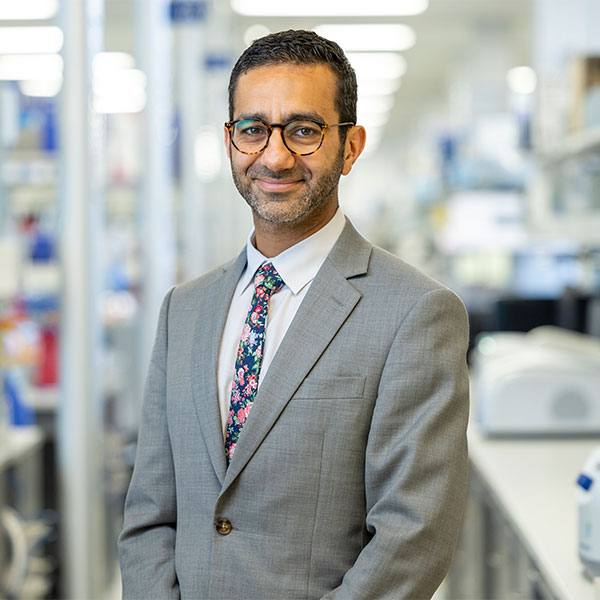-
Neurosciences
Advances in Deep Brain Stimulation Transform Lives

LA CROSSE, Wis. ― Advanced treatments are renewing hope for patients suffering from debilitating neurological disorders. A cutting-edge procedure known as deep brain stimulation (DBS) has become a beacon of hope for individuals with conditions such as Parkinson’s disease, essential tremor, and dystonia, among others.
"Deep brain stimulation is a procedure where electrodes are placed in certain target areas of the brain and connected by insulated wires to a pacemaker-like device. These wires are completely under the skin, so there’s no risk of the device being pulled out," explains Prashant Natteru, M.D., Assistant professor of Neurology and neurologist at Mayo Clinic Health System in La Crosse. "This pacemaker-like device provides constant electrical currents to specific parts of the brain, helping control tremors and improving movement."
Mayo Clinic specialists have been at the forefront of using DBS to treat not only Parkinson’s disease but also essential tremor, dystonia, obsessive-compulsive disorder (OCD), cluster headaches, Tourette syndrome, epilepsy, and chronic pain that hasn't responded to other treatments. Each year, more than 1,700 patients are treated with DBS at Mayo Clinic.
"The procedure is typically done in two stages. Both stages of the surgery are performed at Mayo Clinic in Rochester following which the programming can be facilitated here in La Crosse" says Dr. Natteru. "Patients often find it fascinating, when a person’s tremor stops or lessens in severity almost immediately once the stimulation is turned on. It’s like magic!"
"Deep brain stimulation can significantly improve quality of life when medications are no longer effective or patients are having side effects from the medication," Dr. Natteru notes. "It not only helps with controlling tremors but also mitigates the side effects of Parkinson’s medications, such as dyskinesias or wiggles."
Deep brain stimulation is commonly used to treat several conditions, such as:
- Parkinson's disease.
- Essential tremor.
- Conditions that cause dystonia, such as Meige syndrome.
- Epilepsy.
- Tourette syndrome.
- Obsessive-compulsive disorder.
The benefits of DBS extend beyond just movement disorders. Researchers at Mayo Clinic are exploring its potential in treating conditions like epilepsy, dementia, depression, addiction, and obesity. This ongoing research aims to refine stimulation systems and enhance their efficacy while minimizing side effects.
"There’s so much exciting research happening in the field of DBS," Dr. Natteru highlights. "There are different DBS companies with key innovations including directional leads for precise targeting, wireless programming that will allow patients to be programmed from home, improved battery life with rechargeable options so that you don’t have to replace the batteries, and brain sensing technology for real-time monitoring. The science is advancing rapidly, making it an exciting time for those of us in movement disorders."
While DBS is not a cure, it offers substantial symptom relief for many patients. The amount of stimulation is customized for each individual and can be adjusted over several months to achieve optimal results. Patients can control the stimulation with a remote control. The pulse generator’s battery, which varies in lifespan, can be replaced as an outpatient procedure and you get to go home the same day.
"Our goal is to provide patients with the best possible quality of life," Dr. Natteru concludes. "With DBS, many patients experience significant improvements, allowing them to live more independently."
###
About Mayo Clinic Health System
Mayo Clinic Health System consists of clinics, hospitals and other facilities that serve the healthcare needs of people in Iowa, Minnesota and Wisconsin. The community-based healthcare professionals, paired with the resources and expertise of Mayo Clinic, enable patients in the region to receive the highest-quality physical and virtual healthcare close to home.
Media contact:
- Rick Thiesse, Mayo Clinic Health System Communications Department, 608-392-9435,
thiesse.ricky@mayo.edu







